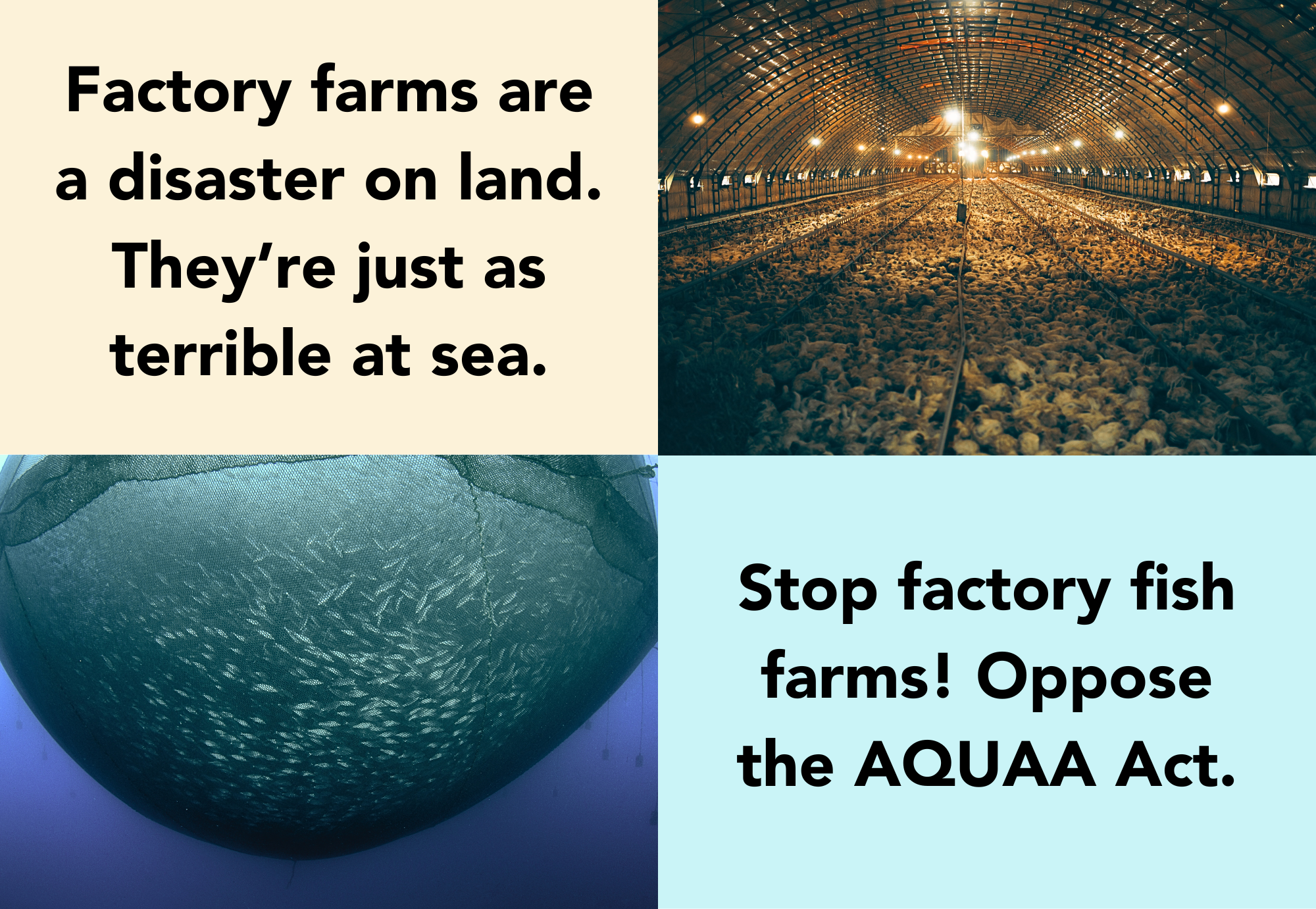Aquaculture 101
The Problem
Coastal communities around the world have farmed seafood sustainably for millennia. But over the past few decades, Big Aquaculture corporations have been using political clout to secure their iron grip on the market and operate with little oversight. Industrial seafood farming follows the dirty formula of high extraction, high pollution, high profits, and rock-bottom quality. This is aquaculture at its worst. It upsets ecosystems, displaces communities, and undermines local economies in these ways:
- Industrial seafood farms are crowded and filthy. They generate waste that pollutes water, and exposes fish to parasites, diseases, antibiotics, and pesticides.
- Concentrations of nutrient waste, such as nitrogen, can cause growth problems in marine life and lead to low-oxygen zone that kill wild fish.
- Escaped farmed fish can spread disease to, intermix with, and change the behavior and genetics of native wild fish.
- Surrounding predators, native fish, and sea birds can get entangled in pen nets and lines and die.
- Equipment failures can lead to worker deaths and fires and can jeopardize marine ecosystems.
- Aquaculture feed, such as GMO soybeans, has become highly profitable for food corporations, so they have a vested interest in pushing the AQUAA Act.
- Industrial aquaculture facilities can destroy coastal habitats. More than 50% of deforested mangroves have been turned into shrimp ponds.
- Biotech firms, such as AquaBounty, are genetically engineering fish species like salmon, which is a danger to Wild Salmon and the Indigenous communities that depend on them.
- Globally, large aquaculture firms are bleeding former fishing communities dry. Many of them are now exploited laborers at giant facilities in their own backyards.

The Solution
Aquaculture by definition is not itself problematic. It has enormous potential to benefit local economies while also supporting wild fisheries, and multiple sustainable methods exist. So what might aquaculture look like if we built it from the bottom up rather than the top down? Through in-depth visioning, boots-on-the-ground activism, and legislative campaigns, NAMA has been helping chart the path forward:
Visioning: We worked with multiple network members on the Aquaculture Values visioning project. Through this collaboration, we found that aquaculture must center eight values:
Legislation:
NAMA’s Don’t Cage Our Oceans campaign is a broad coalition fighting to stop the development of offshore finfish farming in the U.S. This means fighting bad bills and uplifting good ones. Our coalition members are vehemently opposed to the harmful AQUAA Act. This industry-backed bill would expand factory-style fish farms across all U.S. waters, placing profits above ecosystem protection, worker rights, animal welfare, and social responsibility.
